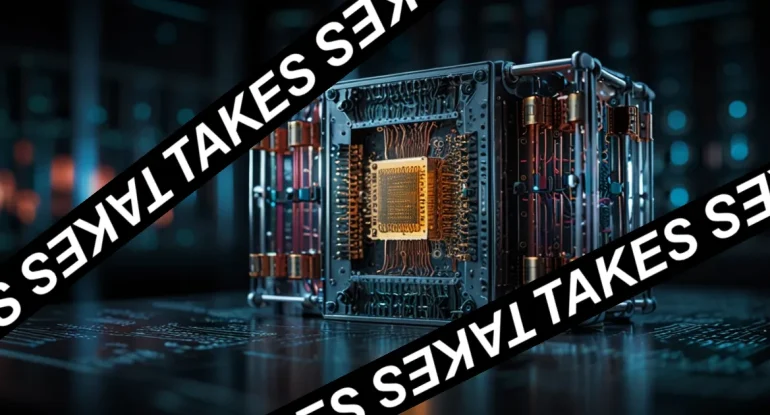Quantum-Resistant Bitcoin Security

So, get this: Project Eleven, a group doing quantum computing research, just put out a challenge. They’re offering a whole bitcoin as a reward – a single bitcoin – to the first folks who can crack an ECC (elliptic curve cryptography) key using Shor’s algorithm on a quantum computer.
Now, there’s a catch (of course). If you’re feeling up to the task and want to snag that bitcoin, you’ve got until April 5th, 2026. That’s the deadline. To win, you have to prove you can actually break a key pair before that date.
Honestly, this whole thing feels like a bit of a joke, and the prize? Well, it’s pretty meaningless for a bunch of reasons. First off, the deadline is less than a year away. Even if you’re super optimistic about how fast quantum computing is advancing, most realistic timelines for achieving something like this are more in the 5 to 10-year range. Expecting anyone to whip up a working demo that cracks a real key pair in just one year? Come on, even if you’re seriously worried about quantum computers in the near future, this seems a little absurd, right?
Then there’s the prize itself – the economic incentive. One bitcoin. Right now, that’s around $80,000. Seriously? In the grand scheme of things, that’s peanuts. Especially when you’re talking about using cutting-edge tech like a quantum computer, something that can crunch through certain calculations exponentially faster than any regular computer. Think about all the *actually* valuable stuff you could do with a quantum computer.
We’re talking about being able to listen in on pretty much any internet connection using TLS. Suddenly, secure banking, stock trading, and private company networks (unless they’re already using super-advanced post-quantum cryptography) are wide open. Every private messaging app on your phone? Cracked. Any PGP-encrypted email you’ve ever sent, as long as someone knows the public key? Decrypted instantly. You could even take down the entire DNS system by breaking its certificate authority setup, letting you fake being any website in the world.
All that power, all that potential, is worth… way, way more than a measly $84,000. So, really, why would anyone with a functioning quantum computer even *think* about revealing it to the world just to claim a single bitcoin when they could be doing all this other incredibly valuable (and probably less public) stuff?
Okay, let’s just pretend for a second that everyone on Earth magically upgrades to post-quantum cryptography overnight, except for Bitcoin. Even then, trying to win *this* prize with a quantum computer still makes absolutely no sense.
Say you’ve got a quantum computer that’s *just barely* good enough. It takes a while to break even one key. Think about all those early Bitcoin blocks – we’re talking about thousands of public keys out there securing 50 BTC outputs from the very beginning. Why in the world would you bother cracking just *one* of them and then announce it to everyone to grab a single bitcoin prize? Wouldn’t you just quietly try to crack as many of those old coinbase rewards as you could before anyone even realized what was happening?
And finally, let’s just talk about the timeline again for a sec. Quantum computers today? They can’t even factor prime numbers that a person can do in their head. And we’re supposed to believe that in just a year, they’re going to leap from that to cracking Bitcoin keys? That’s just… ludicrous.
So, seriously, what’s the real point of this whole prize thing, besides maybe getting a little attention? As a serious warning sign – like a canary in a coal mine – for the Bitcoin community, it’s completely pointless. No matter how worried or not worried you are about quantum computers as a threat, this “bounty” is a joke.
This article is a Take. Opinions expressed are entirely the author’s and do not necessarily reflect those of BTC Inc or Bitcoin Magazine.











